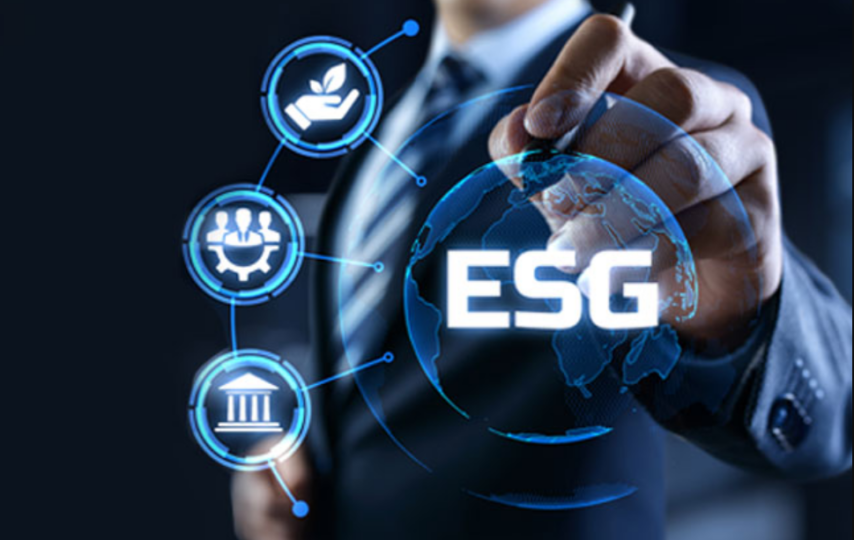Global organizations are emphasizing Environmental, Social, and Governance (ESG) practices given the rising concern about climate change and sustainability. Several federal, state, and local regulations require organizations to make ESG practices a significant part of strategic business decisions.
Given the huge focus, the ESG consulting sector is growing rapidly, with the overall market at 17% CAGR between 2022 and 2027. By 2027, the ESG consulting market is set to reach $16 billion.
This article explains the trends in ESG consulting, how it is evolving, and ways to find the right partner for your organization’s ESG efforts.
What Is ESG Consulting?
ESG consulting comprises assisting a business to align its strategy and processes with sustainability and social contribution. By making ESG an essential part of the business strategy, organizations see a direct positive impact on their bottom line. Studies show a 68% higher return on investment and 77% better financial performance.
Consumers are increasingly becoming sensitive to a company’s ESG efforts, with 72% of them looking for a business whose values align with theirs. Buyers are no longer just concerned about the product but also the greater good they do by purchasing it. For example, household products that are not tested on animals see greater acceptance in the market.
By keeping ESG among core ethics, companies see higher employee satisfaction and retention rates. Employees want to contribute to the greater good, directly or indirectly, and give their best to fulfill the business goals.
Investors see ESG as a major factor when choosing businesses to invest in. 89% of executives say that companies with ESG values have a competitive edge in the market and are more attractive to investors.
Companies need to keep up with the rising demand for ESG practices and regulations. Their ESG efforts should be accurate and measurable. Without ESG consulting, businesses still struggle with regulations and reporting, leading investors to believe that the company is not putting in the enough efforts. ESG consulting guides businesses in envisioning, planning, and implementing ESG strategy and measuring its benefits.
ESG consultancy helps businesses make the right decisions that help comply with regulations, avoid potential risks, drive performance, and improve transparency and credibility.
What Are the Advantages of ESG Consulting in Reducing Scope 3 Emissions?
Scope 3 emissions are the indirect emissions of a business primarily out of the supply chain. While it is easy to detect and measure Scope 1 (direct) and Scope 2 (indirect) emissions, Scope 3 goes unnoticed and under-reported.
Scope 3 emissions contribute a higher percentage, up to 80%, compared to direct and indirect emissions. However, tracking and reducing them remains challenging without robust technology and measurement methods.
Some of the things that fall under Scope 3 emissions are –
- Daily commute of employees.
- Embedded emissions from the building and equipment.
- Transportation and distribution of goods.
- Purchase of raw materials and services.
- Fossil fuel extraction and T&D losses.
- Business travel by air, rail, and road.
- Waste that the production facility produces.
Using a data-driven approach, ESG consultancy tracks and monitors your Scope 3 emissions across the value chain. This provides an opportunity to build excellent relationships with suppliers, increase efficiency, and promote innovation for sustainability. ESG consultancy approaches the Scope 3 emissions reporting through these three stages –
Stage 1 – Reporting and insight generation
Any ESG transformation effort should begin with robust upstream and downstream measurement and accounting techniques. Data-driven strategies use AI and cloud computing technologies to present unified data on customizable dashboards.
Stage 2 – Strategy building
Once you have a robust data collection structure, ESG consultancy helps you translate this into a long-term business strategy. For example, evaluating your suppliers will give you a bird’s eye view of their greenhouse gas (GHG) emissions. You can work with the suppliers to reduce this within the permissible limit. You can also make informed decisions to change suppliers if required.
Build a framework for the governance of ESG practices that produce high-quality reports for annual disclosures.
Stage 3 – Transforming business practices
With data and strategy in your arsenal, you can transform business practices – usually a step-by-step process. Build your procurement practices and supplier onboarding around sustainability in a set of criteria applicable to your business.
What Factors Are Driving the Fast Progression of the ESG Consulting Sector?
Irrespective of the size of the business, ESG is no longer an option but a driving force behind the overall strategy. ESG assets of companies are set to reach $30 trillion by the year 2030. Some of the main drivers fueling the fast progression of ESG consulting are:
Net Zero Emissions Economy
As per COP26, 190 countries have agreed to achieve lower carbon and other GHG emissions to curtail climate change. Businesses must accelerate their efforts to adopt an ESG-first strategy for sustainable operations across the value chain.
ESG Regulations
New and complex regulations will govern the ESG goals, and Europe is already at the forefront by introducing the ESG regulatory framework. These frameworks will make ESG practices robust and tangible and curb greenwashing with transparent reporting.
Importance for Investors
The ESG efforts, ratings, and rankings are major business decisions for potential investors. Investors will perceive companies that demonstrate an ESG-first strategy as low-risk investment opportunities. Funds for sustainable businesses have gone up to $3.9 trillion.
Crisis Management
After Covid-19, there is a growing demand for a robust crisis response and management approach. ESG strategy helps achieve this goal as a business prepares itself better with higher employee motivation, retention, and branding.
Sustainable Development Goals
The United Nations Sustainable Development Goals (UN SDGs) have set a timeline till 2030 for businesses to realign their strategies towards a sustainable future. ESG consulting can help businesses design, implement, and track their progress.
Digital Transformation
ESG and digital transformation go together to achieve sustainable operations, procurement, and supply chain management. Digitization of operations increases the impact and value of a company’s ESG efforts. ESG consulting plays a critical role in strategy building and technology transformation, with sustainability as the goal.
Data-driven Reporting
It is important to present your ESG strategy and its impact in numbers through reports. You can demonstrate credibility and transparency to investors and stakeholders by monitoring and measuring your impact. ESG consultancy ensures you get a robust and flexible reporting structure that can transform complex numbers into charts and reports that are easy to read and interpret.
ESG Consulting – A Fast Evolution
The global focus on ESG is pushing businesses to change their approach and respond to new market levers. ESG consulting is a natural choice to help adapt to an evolving market landscape and demand. Companies can quickly learn and improvise their strategy, aligning it with ESG ethos with consulting services. This is where choosing the right ESG consulting partner becomes essential.
Tips To Find Out the Right ESG Consulting Firm
With numerous consultancies dotting the ESG landscape, it is important to distinguish between the average and exceptional. A great ESG consulting firm puts your needs first and works with the management to design a solution that works best for your business. The consultancy should be clear about and rooted in the environmental, social, and governance goals. Here are some of the points to help you choose the right firm –
- Prioritize your business goals – The consulting firm should understand your values and areas of priority clearly before they assist in designing the best ESG strategy for your business. An ESG strategy without understanding core values and goals is bound to create conflict rather than aid in your sustainability journey.
- Specific industry experience – Choose an ESG consulting firm with prior experience in your industry. For example, an ESG consultancy from the tourism sector may not be a good fit for a manufacturing business. Specialists know what works for your industry and the regulations and can directly impact your bottom line.
- Technical and people skills – It is important to have a consulting team that listens well, is detail-oriented, adapts to your requirements, and has excellent research capabilities. The ESG consultant must guide you in the right direction and provide up-to-date information so that you can make better business decisions.
- Market reputation – Lastly, ask about the consultancy’s reputation from other clients and look up their track record online. Look for authentic testimonials and speak to their clients one-on-one, if possible.
The best ESG consulting firms can make your journey toward sustainability smooth and productive with tangible results. By investing in ESG consultancy, you set your business up for greater interest from investors, better branding and customer acceptance, and a direct impact on sales.








